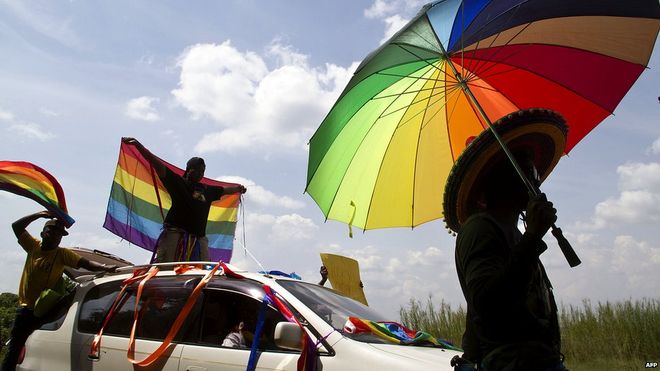
SA’s “Troubling” View on Human Rights at UN
South Africa’s delegation to the United Nations this week chose to abstain from a key vote in support of gay rights, a decision only compounded by the SA ambassador’s later comments that it was more important to stand in solidarity with Africa. The nonprofit UN Watch, which monitors votes in the UN, called South Africa’s stance on […]

South Africa’s delegation to the United Nations this week chose to abstain from a key vote in support of gay rights, a decision only compounded by the SA ambassador’s later comments that it was more important to stand in solidarity with Africa.

The nonprofit UN Watch, which monitors votes in the UN, called South Africa’s stance on human rights “troubling” and said the ambassador’s statements on Thursday made the situation even worse.
Here is the UN Watch statement:
“South Africa, often dubbed the “rainbow nation,” has come under increased criticism during this week following its decision to abstain from a key vote in support of gay rights during the last session of the UN Human Rights Council. Even more so when their progressive 1996 Constitution is the only one is the world that explicitly bans sexual orientation as a cause for discrimination.
“The South African UN ambassador, Nozipho Mxakato-Diseko, was interviewed yesterday in her nation’s radio trying to explain her UN stance but in fact made things even worse. She used several dubious and incoherent excuses to justify her vote, sparking the ire of South Africa’s LGBTI and human rights community.
“According to the interviewing journalist, Redi Tihabi, the South African ambassador explained their lack of support to the resolution for gay rights due to the following reasons:
- South Africa did not oppose the vote on the protection of LGBTI, it just abstained.
- The approach of the countries who supported the resolution was “arrogant.”
- Many developed countries oppose [South Africa’s] resolutions.
- No South African NGOs approved the [UN] resolution on the protection of LGBTI.
- South Africa “carr[ies] Africa with us,” and has to prioritize African solidarity.
“So, according to South Africa’s UN ambassador, the country has to lower its principles and standards at the UN in order to align them with the 38 African nations which criminalize homosexuality and regard it as a disease that has no place in their society.
“Although South Africa domestically has a good record in promoting and protecting gay rights, actions speak louder than words and South Africa’s actions in this field have lately been far from exemplary. Maybe South Africa does indeed carry Africa with them but why carry it in the exact opposite direction of progress? South Africa should serve as an example of tolerance and lead the way for their home continent. Instead, it chooses to compromise in the lowest common denominator and systematically backs down from speaking out in favor of LGBTI rights in the international stage.
“This vote also reveals a wider problem at the UN Human Rights Council, the fact that countries which participate do not have the promotion and protection of human rights as their ultimate goal but rather geopolitical or other interests. “Solidarity” [or better leadership] of Sub-Saharan Africa is deemed as a higher principle than the upholding of the nation’s constitutional commitments or genuine human rights.
“Unfortunately, it would be a utopia to think that this would be the last time that we see states prioritizing political alliances over human rights at the UN.”